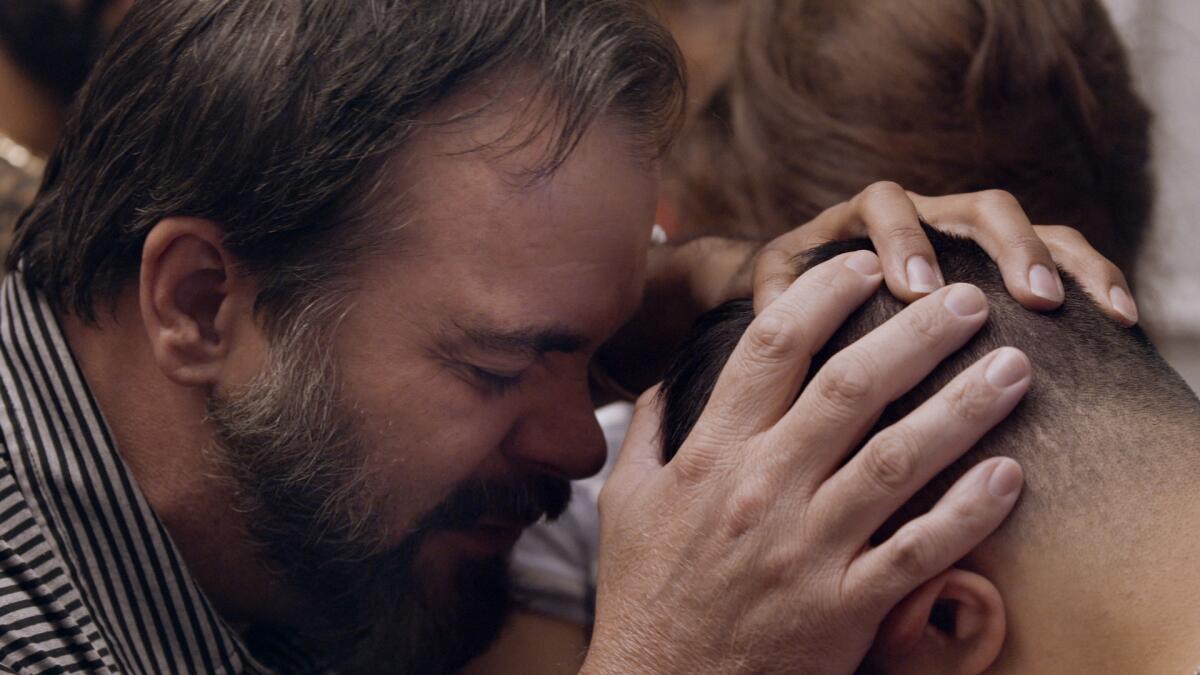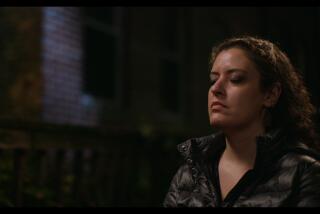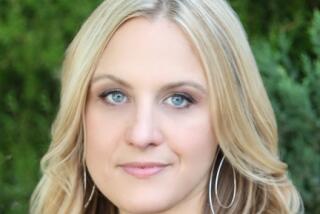Review: Exposing the lie of conversion therapy

Conversion therapy, the indoctrination that certain religious groups teach can change a person’s sexual orientation, is viciousness disguised as salvation. Although less common than in decades past, the practice, exposed in director Kristine Stolakis’ hard-hitting documentary “Pray Away” (executive produced by Ryan Murphy and Jason Blum), remains dangerously alive.
Those undergoing this harmful and baseless ordeal do so in search of acceptance from their families, but also in many cases from a higher power. The notion that the God they believe created them can’t love them as they are inflicts immeasurable guilt. Bolstered by pseudoscientific claims, numerous organizations carry out group meetings, emotional one-on-one sessions and conventions to correct what they see as sinful but curable.
Standard in form, relying mostly on emotional interviews and archival footage, “Pray Away” chronicles individual trauma and the broader political implications of the practice. A keystone of Stolakis’ far-reaching investigation is Exodus, an interdenominational nonprofit dedicated to “treating” homosexuality. For more than 30 years, its psychologically violent programs have driven many to despair and even suicide.
Former figureheads of the ex-gay movement, including Exodus cofounder Michael Bussee, come on camera to speak out about their past and seek atonement. These remorseful confessions evince a conflictive duality, as victims and perpetrators. Hearing those who knew the inner workings, and who trusted they could themselves suppress their identities, denounce the self-hatred that conversion therapy promotes injects tremendous gravitas to the documentary’s overall argument.
The film opens with Jeffrey McCall, who lived as a trans woman until a newly found religious devotion convinced him that the only path to Christ was living as his biological gender and renouncing the “LGBTQ lifestyle.” Footage of the well-attended public events McCall arranges to recruit young people sharing similar beliefs immediately dismisses any wishful thinking that bigotry will die with the older generations. McCall is a model outlier with which evangelicals and other conservatives can anchor their propaganda.
That was the role John Paulk played as well.. Once the poster child for ex-gay success, he would confidently appear on talk shows and magazines with his then-wife, both claiming they had overcome their sex-same attraction through faith, their marriage and their children. In striking contrast with McCall, however, Paulk is now living as an openly gay man with a partner, speaking with great regret of the deceit that nearly killed him.
Several recent fiction films, including “Boy Erased” and “The Miseducation of Cameron Post,” have engaged with the personal trauma and horrifying implementation of conversion therapy from intimate perspective. “Pray Away” doesn’t discuss the nature of the abuses those coerced to participate undergo.
Instead, it uses survivors who held positions of power to investigate the ways in which homophobia can turn into damaging policy. Yvette Cantu Schneider, a bisexual activist previously on the side of the fundamentalist lobbying group Family Research Council, for example, dissects the 2008 fear-mongering campaign for passage of Proposition 8 to ban gay marriage in California.
With every added account of shameful contrition, the realization that this issue exists very much in the present tense weighs heavy on the viewer, relieved a bit by Julie Rodgers, a lesbian advocate and author, who offers some explanation of why some of these ex-ex-gays still desire to belong to a congregation. Perhaps for some, regaining that spirituality on their own terms, fully in the light of their truth, is also fighting back.
But as Stolakis’ debut feature warns, society will not rid itself of these backward enterprises until it manages to finally exorcise homophobia itself.
‘Pray Away’
Rating: PG-13
Running time: 1 hour, 41 minutes
Playing: Available on Netflix
More to Read
Only good movies
Get the Indie Focus newsletter, Mark Olsen's weekly guide to the world of cinema.
You may occasionally receive promotional content from the Los Angeles Times.










